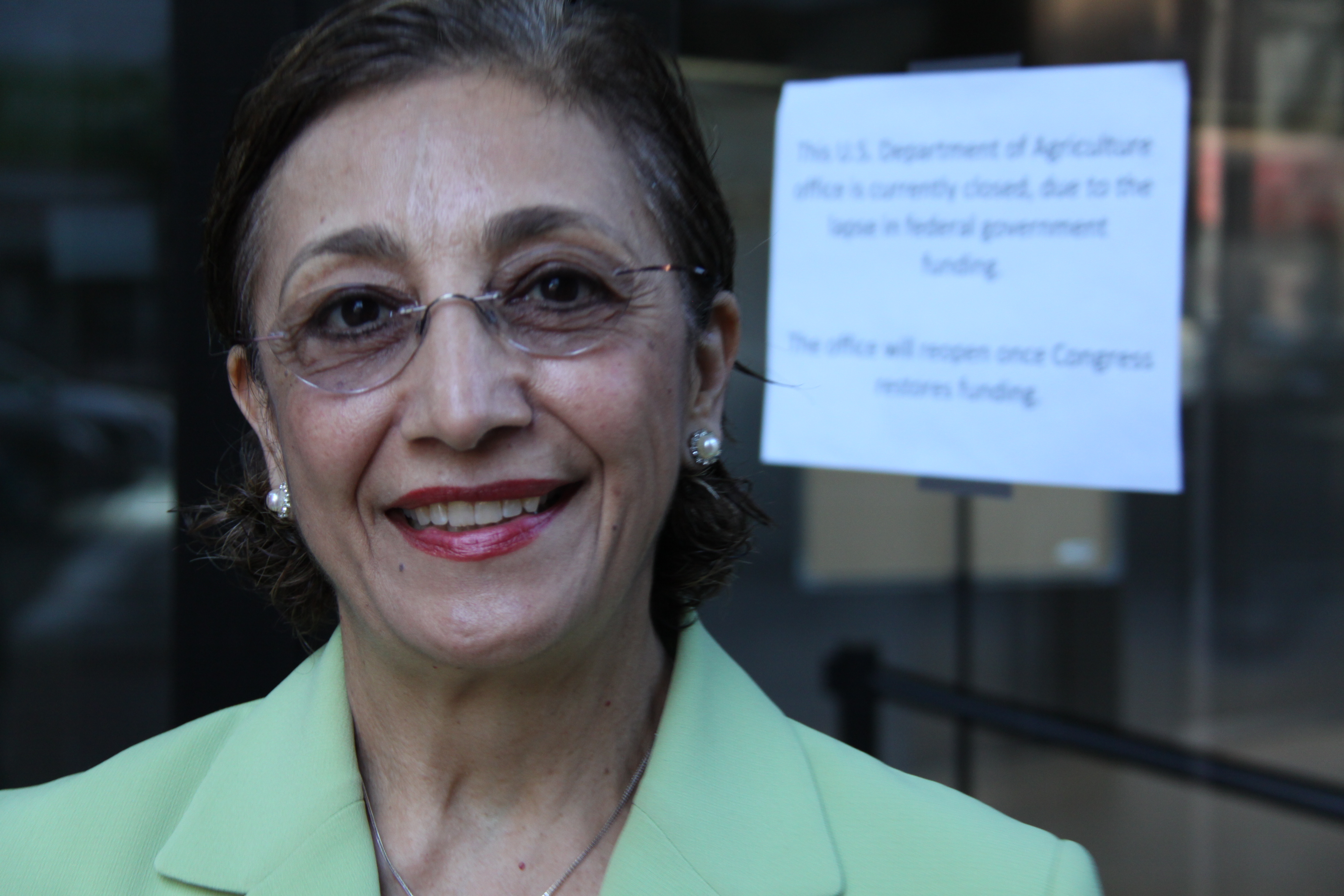
LOCKED OUT: Dr. Simin Meydani stands outside the USDA Nutrition Center at Tufts University on Thursday three days after the lab was closed due to congressional budget cuts.
Everyone has been focused this week on the gridlock in Washington, but how is the partial government shutdown playing out on the ground – on college campuses?
The National Institutes of Health, which provides the vast majority of higher education research funding, has suspended its operations, potentially undermining long-term college and university projects.
Ever since the government shutdown began Tuesday at midnight, the USDA's Nutrition Center on Aging at Tufts University in Chinatown has been closed.
The Center studies the relationship between nutrition and age-related diseases under congressional mandate, and the partial government shutdown has completely undermined the team's research, said the Center's director, Dr. Simin Meydani, in an interview in front of her locked research facility on Thursday.
“What we do here is all focused on trying to understand the basis of the aging process and how we can use dietary interventions and physical activity to prevent them,” Meydani said.
But with more than 200 lab employees furloughed, that research is not just delayed but also in jeopardy. The Center has put on hold many of its animal and human studies.
“Maybe we can do that for a couple of days, but if it continues than we’re going to have to lose a lot of important and significant biological samples that we have worked very hard to collect,” she said. “We are not going to be able to complete those studies and that is going to be a huge loss.”
So far, the impacts on college campuses have been relatively isolated and specific. Historians who want to use federal databases are finding that many of them have been shut down. Perhaps the biggest impact of the government shutdown in higher ed, though, is at the service academies: West Point, Annapolis and the Air Force, where a high percentage of courses are taught by civilian federal employees who are now furloughed.
The American Council on Education, which represents colleges and universities, is opposed to the shutdown. But Vice President Terry Hartle says if the Council got involved, it would be impossible to come out unscathed.
“This is such a high-level political controversy that the views of any one trade organization or any one industry are really passed over,” Hartle said in a phone interview on Thursday. “This is a political food fight. Getting involved in this issue would be like trying to walk through no man’s land at the Battle of the Somme.”
With the political battle being fought in Washington, WGBH visited the Harvard Kennedy School of Government in Cambridge to gauge reaction from students.
As she ate lunch in the courtyard, first-year student Dina Shahrokhi said the shutdown is an embarrassment.
“We’re here at this school where 50 percent of our classmates are international students and it’s hard to explain to them how this has come to be,” Shahrokhi said.
Some students were frustrated; they said dysfunction in Washington makes them question whether they want to serve. But Shahroki said it’s quite the opposite.
“I think a lot of us are here because we see areas that have potential for improvement and need for improvement,” she said.
And Shahrokhi is not going to wait patiently. She and other students plan to protest the shutdown and to get more politically involved.










